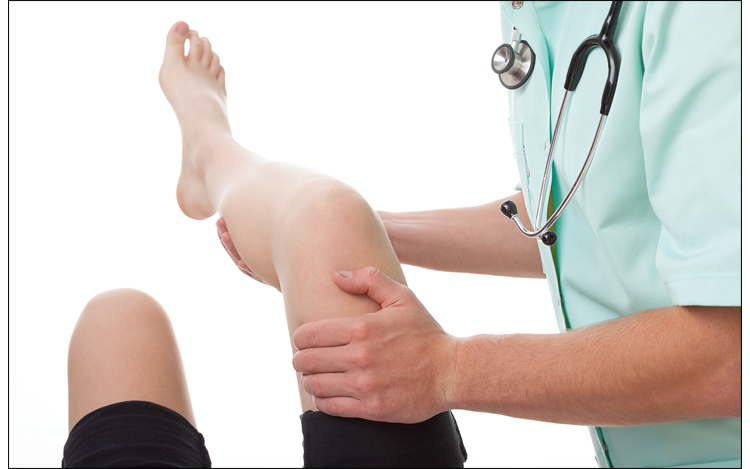Test your knowledge on the before, during, and after of knee surgery
FOR MANY INDIVIDUALS, debilitating knee pain due to arthritis or an injury is a daily reality. For those with such knee problems, walking is painful, and stairs of any kind present a major obstacle. Knee surgery is one option for relief, but many are wary due to not knowing what to expect. Challenge your knowledge and learn something new by taking our quiz on what happens before, during, and after knee surgery.
1. Knee surgery is an option for which of the following problems?
A. Osteoarthritis, a degenerative joint disease
B. Rheumatoid arthritis
C. Traumatic arthritis due to injury
D. All of the Above
2. Which of the following is NOT a symptom of a knee that’s a candidate for knee surgery?
A. Knee pain and/or swelling
B. Loss of range of movement
C. Discoloration
D. The joint “gives way” because it is not stable
E. None of the Above
3. Which of the following occurs during knee replacement surgery (also called arthroplasty)?
A. Titanium parts completely replace the damaged areas of the knee
B. Metal and plastic parts are used to resurface or cap the ends of the bones that form the knee joint and kneecap
C. A replacement knee from an organ donor organization is used
D. Bone and tissues are taken from other parts of the body to rebuild the damaged knee sections
4. True or False? Middle-aged or older adults are most likely to undergo knee surgery.
5. Which of the following are treatments that could accompany knee surgery?
A. Medications or drugs like anti-inflammatories, pain medications and/or supplements such as glucosamine and chondroitin sulfate
B. Cortisone injections and/or Viscosupplementation injections
C. Assistive devices like knee braces, canes, walkers, etc.
D. Physical therapy and weight loss if needed
E. All of the Above
6. Fill-In-The-Blank: Generally, knee replacement surgery requires that you be put under with a sedative or anesthesia and _________________.
A. An outpatient doctor visit
B. An in-hospital stay of one night
C. An in-hospital stay of several days
D. An in-hospital stay spanning weeks
7. After surgery, patients can expect:
A. Pain medications and physical therapy for an extended time
B. Limited mobility for about a week
C. Complete healing after a day or two
D. No need for assistive device like a cane
8. After having knee replacement surgery, you must be careful not to do which of the following?
A. Put strain on the joint through exercise, heavy lifting, etc.
B. Sustain a fall
C. Return to regular activity too quickly
D. Climb stairs, ladders, etc.
E. All of the Above
ANSWERS
1. D. All of the Above. Arthritis from age, injury or certain conditions is most likely to require knee surgery.
2. C. Discoloration. Those who are candidates for knee surgery experience pain and swelling, disability through loss of range of motion, and unstable joints; discoloration is not a symptom.
3. B. Metal and plastic are used to resurface those parts of the knee joint and knee cap that have been damaged by arthritis or injury.
4. True. Middle-aged or older adults are most likely to suffer from osteoarthritis, a degenerative joint disease, which is the most common condition that results in knee replacement surgery.
5. E. All of the Above. One or a combination of such treatments may be used instead of, or in addition to, knee replacement surgery.
6. C. An in-hospital stay of several days. Replacement knee surgery is a complex procedure with all the risks of other types of surgery, such as infection.
7. A. Pain medications and physical therapy. Recovery from knee replacement surgery is neither quick nor easy.
8. E. All of the Above. Until instructed by your physician, you should avoid exerting or damaging your knee in any way, such as through strenuous work, play or an accident.
Resources: Information provided by John Hopkins Medicine at hopkinsmedicine.org.
CREDIT
article by by ERIKA ALDRICH
